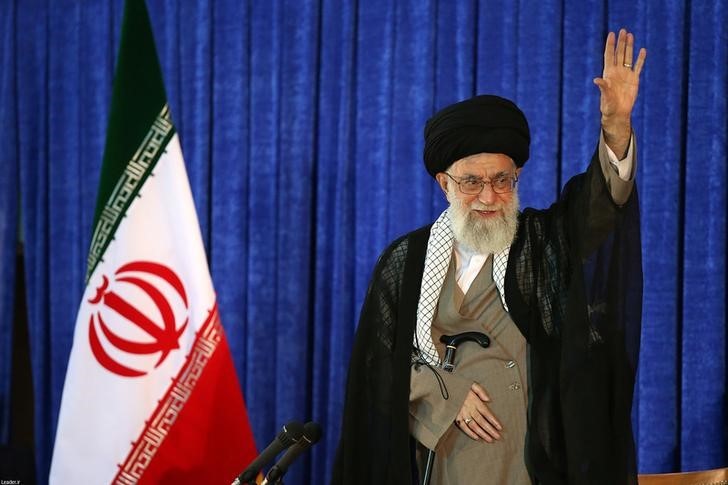By Bozorgmehr Sharafedin
BEIRUT (Reuters) - Extending U.S. sanctions on Iran for 10 years would breach the Iranian nuclear agreement, Iran Supreme Leader Ayatollah Khamenei said on Wednesday, warning that Tehran would retaliate if the sanctions are approved.
The U.S. House of Representatives re-authorized last week the Iran Sanctions Act, or ISA, for 10 years. The law was first adopted in 1996 to punish investments in Iran's energy industry and deter Iran's pursuit of nuclear weapons.
The Iran measure will expire at the end of 2016 if it is not renewed. The House bill must still be passed by the Senate and signed by President Barack Obama to become law.
Iran and world powers concluded the nuclear agreement, also known as JCPOA, last year. It imposed curbs on Iran's nuclear program in return for easing sanctions that have badly hurt its economy.
"The current U.S. government has breached the nuclear deal in many occasions," Khamenei said, addressing a gathering of members of the Revolutionary Guards, according to his website.
"The latest is extension of sanctions for 10 years, that if it happens, would surely be against JCPOA, and the Islamic Republic would definitely react to it."
The U.S. lawmakers passed the bill one week after Republican Donald Trump was elected U.S. president. Republicans in Congress unanimously opposed the agreement, along with about two dozen Democrats, and Trump has also criticized it.
Lawmakers from both parties said they hoped bipartisan support for a tough line against Iran would continue under the new president.
President-elect Trump once said during his campaign that he would "rip up" the agreement, drawing a harsh reaction from Khamenei, who said if that happens, Iran would "set fire" to the deal.
The House of Representatives also passed a bill last week that would block the sale of commercial aircraft by Boeing (N:BA) and Airbus (PA:AIR) to Iran.

The White House believes that the legislation would be a violation of the nuclear pact and has said Obama would veto the measure even if it did pass the Senate.